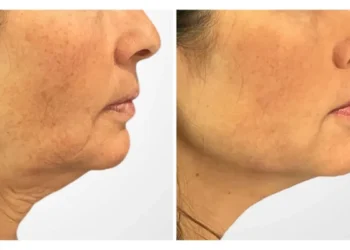In today’s fast-paced healthcare environment, doctors are expected to deliver excellent patient care while also keeping up with extensive documentation, compliance, and administrative tasks. This growing burden can lead to physician burnout, decreased productivity, and reduced face time with patients. That’s where medical scribe services step in, offering much-needed support and relief, especially through the advancement of virtual technology.
A virtual medical scribe is a trained professional who remotely assists physicians by documenting patient encounters in real-time, entering notes into the electronic health record (EHR), and streamlining clinical workflows. For busy physicians, especially specialists such as cardiologists, this support is proving to be invaluable.
Lightening the Documentation Load
Medical documentation is one of the most time-consuming aspects of a physician’s role. For every hour spent with patients, doctors often spend two additional hours completing EHRs. This imbalance takes away from patient care and personal time. Medical scribe services allow physicians to focus on diagnosing, treating, and communicating with patients, while the scribe handles the administrative side. These services reduce charting time significantly, often resulting in more accurate, timely, and comprehensive documentation.
Benefits for Cardiologists
Cardiology is a specialty that requires careful attention to detail. Patient interactions can involve complex histories, medication management, test interpretations, and follow-up plans. A cardiologist medical virtual scribe understands these nuances and can ensure that all relevant details are captured clearly and accurately in the medical record. This tailored support not only helps improve the quality of care but also helps cardiologists stay organized and compliant with evolving documentation standards.
Moreover, cardiologists often see high patient volumes and manage intricate care plans. With a virtual scribe managing their records in real time, cardiologists can see more patients without sacrificing quality. This boosts both clinical efficiency and revenue generation, as fewer hours are spent catching up on notes after clinic hours.
Enhancing Patient Satisfaction
One of the unintended consequences of physicians spending too much time on screens is a perceived loss of connection with patients. Patients often feel unheard or rushed when their doctors are typing during consultations. Virtual medical scribes change that dynamic. By handling documentation remotely, they allow doctors to maintain eye contact, actively listen, and engage in more meaningful conversations.
This improved patient-doctor interaction leads to higher satisfaction rates. Patients appreciate the undivided attention, while doctors can work more mindfully and avoid the stress of backlogs.
Cost-Effective and Scalable
Hiring in-person scribes can be costly and logistically complicated. Virtual medical scribe services, on the other hand, are often more affordable and easier to scale. Clinics and hospitals can quickly onboard a virtual scribe service without the need for physical workspace, onboarding expenses, or long-term commitments. These scribes are trained to work across different specialties, EHR platforms, and clinical environments.
Virtual services also offer flexibility. Whether a doctor works in a large hospital, private clinic, or telehealth setting, scribes can adapt and work alongside the physician seamlessly, regardless of location.
Improved Work-Life Balance
Physician burnout has become a significant issue across the healthcare industry. With excessive workloads and long hours, maintaining a healthy work-life balance is a challenge. By offloading time-consuming tasks to a virtual scribe, physicians can reclaim hours in their day. This helps reduce stress, prevent burnout, and allows for better personal and professional well-being.
The Future of Clinical Efficiency
As healthcare continues to evolve with new technologies and increased demand, virtual solutions will only grow in relevance. Virtual scribe services offer a bridge between clinical excellence and administrative efficiency. For specialists like cardiologists, the integration of a cardiologist medical virtual scribe can significantly enhance the quality and pace of care delivery.
In conclusion, medical scribe services are no longer a luxury—they are a necessity for modern healthcare practices. From improving documentation and boosting efficiency to enhancing patient experience and supporting physician well-being, virtual medical scribes are proving to be indispensable allies in clinical care. As more practices adopt these services, the healthcare experience is poised to become more connected, efficient, and human-centered.






